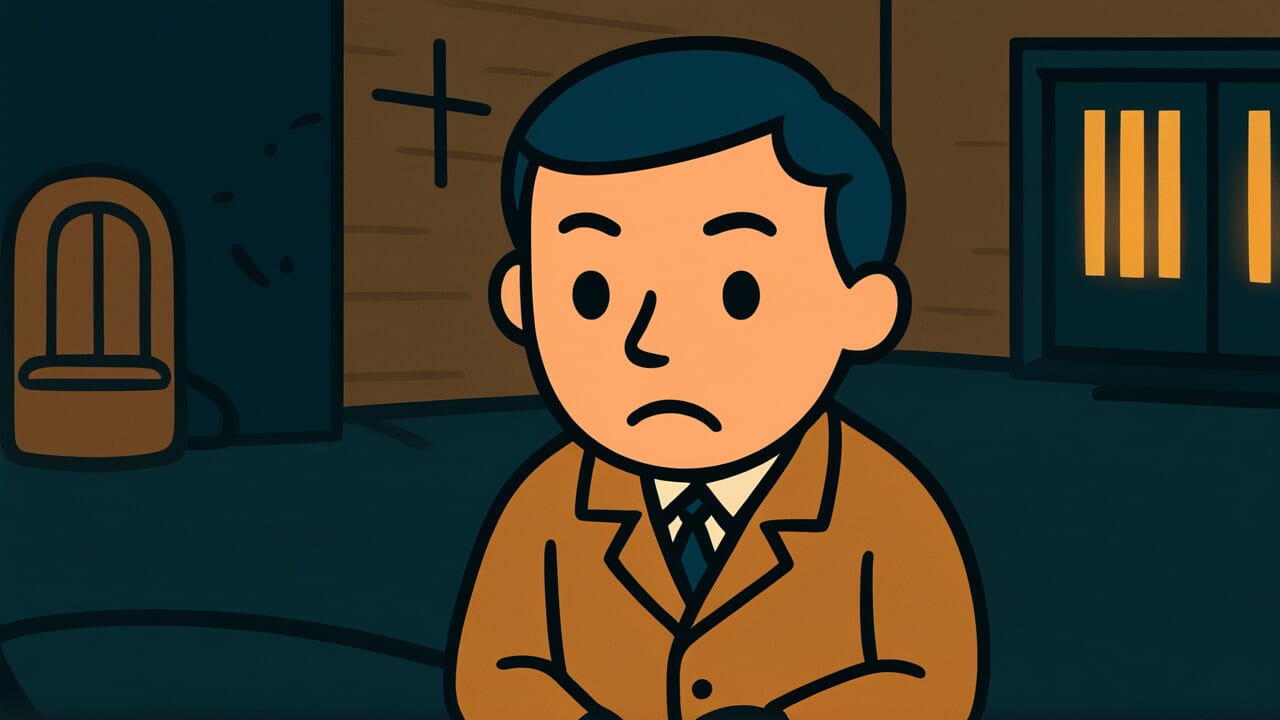How to Read “A sour face in the dark”
Kuragari no shibuzura
Meaning of “A sour face in the dark”
“A sour face in the dark” is a proverb that compares wasted effort or empty complaints to making an unhappy face in darkness where no one can see it.
This proverb is mainly used when you see someone expressing complaints in a place or way that no one will notice.
For example, it applies when someone complains behind someone’s back instead of speaking directly to them. It also describes expressing anger in a place where nobody will see it.
More broadly, it refers to any futile action where someone tries to show their feelings through ineffective methods.
This expression still holds meaning in modern times. Writing complaints on social media where nobody reads them is exactly like “a sour face in the dark.”
So is expressing dissatisfaction in ways that never reach the intended person.
The proverb teaches an important lesson. If you want to communicate something, you must express it in the right place and in a way that actually reaches the other person.
Origin and Etymology
No clear written records explain the origin of this proverb. However, we can make interesting observations from the words themselves.
“Shibuzura” means an unhappy facial expression or a grimace. The word “shibui” originally meant bitter or unpleasant.
Over time, it came to describe a hard and stern facial expression. Documents from the Edo period show phrases like “make a shibuzura,” suggesting it was commonly used back then.
Japan’s historical lighting conditions likely influenced the birth of this proverb. In times before electricity, darkness at night was truly pitch black.
With only lanterns or candles for light, reading someone’s facial expression would have been nearly impossible.
The proverb probably emerged from observing that making an unhappy face in darkness where nobody could see it was meaningless.
Humans are creatures who communicate with others through facial expressions. But when those expressions cannot be seen, showing dissatisfaction on your face becomes pointless.
This proverb cleverly expresses this obvious yet profound truth through the concrete situation of darkness.
Usage Examples
- Writing endless complaints about your company on a blog nobody reads is like a sour face in the dark
- Complaining when the person isn’t there is a sour face in the dark that changes nothing
Universal Wisdom
The proverb “a sour face in the dark” sharply captures the essence of human communication. We are emotional beings with a desire to express our feelings.
However, this proverb teaches us the harsh reality that expressing something and having it understood are two different things.
What’s interesting is that this proverb doesn’t simply say “stop because it’s useless.” Instead, it observes human nature itself.
People naturally make unhappy faces even when nobody is watching. This happens because emotions naturally show on our faces.
But this natural reaction doesn’t necessarily achieve our goals.
This proverb has been passed down through generations because it expresses a fundamental human dilemma. We cannot help but express our emotions.
Yet if those expressions don’t reach others, nothing changes. Having complaints is natural, but how we express them matters.
Our ancestors understood this aspect of human nature. They recognized that having emotions proves our humanity.
But they also understood that the wisdom to communicate those emotions effectively is equally necessary.
Through the emptiness of making a sour face in the dark, they question the essential meaning of communication.
When AI Hears This
The human brain shows about 30 percent more amygdala activity when seeing faces in dark places compared to bright ones.
The amygdala controls fear and alertness. In other words, the brain automatically enters alert mode in darkness.
Even more interesting is how the brain fills in incomplete visual information by assuming “worst-case scenarios.”
For example, when you see someone’s face in dim light, you might interpret shadows around the eyes as “anger.” You might judge unclear mouth movements as “displeasure.”
This is a survival strategy the brain acquired through evolution. Throughout history, being overly cautious in darkness increased survival chances more than missing potential dangers.
In actual experiments, about 65 percent of subjects perceived “negative emotions” when viewing the same neutral face photo at lower brightness.
This compared to only about 20 percent in bright conditions, showing a significant difference.
The essence of this proverb isn’t just the surface-level observation that sour faces can’t be seen in darkness.
Rather, it points to how darkness makes people see even neutral faces as unhappy due to human cognitive bias.
The brain automatically interprets invisible things negatively. This neuroscientific mechanism is the root cause of misunderstandings in human relationships.
Lessons for Today
This proverb teaches modern people to have the courage to choose methods that actually communicate when you have something to say.
Bottling up complaints and opinions inside or venting them where nobody sees changes nothing.
Modern society offers countless ways to communicate. But precisely because we have so many options, we need wisdom to choose the right method.
If you have complaints about your boss, don’t post them on social media. Instead, communicate constructively in an appropriate setting.
If you have a misunderstanding with a friend, don’t complain to others. Talk directly with them instead.
Such choices move your life forward.
The important thing is not to deny having emotions. Feeling dissatisfied is natural.
But how you handle those emotions changes your future. Don’t make a sour face in the dark.
Instead, in a bright place, looking into the other person’s eyes, honestly express your thoughts.
That one step enriches your relationships and your life. Complaints that don’t reach anyone are just burdens.
Words that reach others are the first step toward change.



Comments